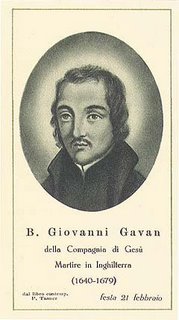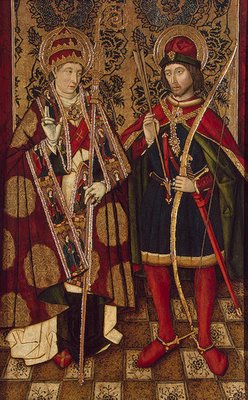The Results Are InOne of the memes travelling around in the aftermath of the Tory victory last night is how the Tories lost ground in BC. Particular blame is placed on social conservatives, and analysts point to the failure of Darrell Reid in Richmond, Cindy Silver in North Vancouver and John Weston in my and
Dilexit Prior's home riding of West Vancouver-Sunshine Coast-Sea to Sky Country as evidence (incidentally, at least one should not qualify as a social conservative in the sense often used).
This analysis
could not be more wrong. If one actually looks at the numbers they support, if anything, the opposite conclusion.
First, let's look at the numbers for the province as a whole.
In 2004, the three main parties split the vote in the following manner:
Conservatives: 36.3%
Liberals: 28.6%
NDP: 26.5%
This gave the parties the following seats: 22, 8 and 5 (with one Independent).
In 2006, we see:
Conservatives: 37.3%
Liberals: 27.6%
NDP: 28.6%
So, the Tories went up 1%, the NDP went up 2.1%, and the Liberals declined by 1%. Now, since the vote split is essentially the same you'd ordinarily expect largely the same result, but instead the seats split 17, 9 and 10. The basic answer as to why? Plain bad luck. By contrast, the Liberals had a smaller edge in Atlantic Canada: 40.0% to 34.5% for the Tories and 22.7% for the NDP, despite which, the Liberals won 20 of 32 seats.
Now, let's look at the ridings of Cindy Silver, John Weston and Darrell Reid. All three were running for the first time. In all cases, the numbers reflect the change in vote % over the 2004 candidate's results.
Cindy Silver: +0.4%
John Weston: +0.7%
Darrell Reid: +3.4%
Now, one might say that Silver & Weston didn't advance as far as the rest of the party, and so their performances were (marginally) below standard. But in 2004 the Conservative candidates in both of their ridings were incumbents; in John Weston's case, a very prominent MP. This year, Cindy Silver also had to run against an incumbent. Given all of this, it must be said that all three candidates did well vis-a-vis the rest of the province.
Now let's look at a few notable socially conservative MPs who were re-elected (I choose MPs who were
already incumbents in 2004, so as to disallow a difference in incumbency to affect the numbers).
John Cummins, Delta-East Richmond: +2.8%
James Lunney, Nanaimo-Alberni: +2.4%
and, of course, the social conservative of social conservatives,
Stockwell Day, Okanagan-Coquihalla: +0.6
So, we can see that the social conservatives generally outperformed the Conservative Party provincially. Now, let's look at a few social liberals within the Tories.
Betty Hinton, Kamloops-Thompson-Cariboo: -1.0%
James Moore (one of only 4 Tories to vote for same-sex marriage): +0.1%
Ouch! A pretty poor show, especially for James Moore, touted in the media as the boy wonder, the maverick, and a sure Cabinet pick.
Now, I believe there was at least one competitive riding where a social conservative ran this time for the Tories and a social liberal ran last time (I'm not entirely sure, so I'm open to correction). That riding is Esquimalt-Juan de Fuca, where Keith Martin ran against John Koury in 2004 and Troy DeSouza this year. Troy DeSouza outpolled Koury by 3.4%.
What are the lessons here? Clearly, social conservatism doesn't appear to hurt Tory candidates. Indeed, insofar as the numbers show, it appears to help. Now, I'll make a much less vigourous claim, only that social conservatives give every indication of being better candidates. I suspect this is not so much the result of the attraction of social conservatism in BC, but rather the correlation between social conservatives and being intelligent, convincing, and principled.
So why did John Weston lose? It wasn't on account of his performance, but rather as a result of a decline in the NDP and Green votes, which went (as we'd expect) to the Liberals. The Tories were victims of unfortunate splits in BC, and none more so than Weston.
Update: Sorry for the late post, by the way- I went out for a movie with my Father. On to further analysis, of a sketchy and uber-partisan variety. While the Tories ended up with perhaps 20 fewer seats than I expected, their breakthrough in Quebec (10 seats) more than makes up for it. Quebec is the uncharted country (well, not quite anymore), and it is in Quebec where further gains may most easily come. It was wonderful to see flacks like Tony Valieri, Reg Alcock, Liza Frulla, Andy Savoy and Pierre Pettigrew get sent back to the private sector. It was still more wonderful to see Alberta get rid of Anne McLellan and complete the sweep. Also on a positive note the Liberal Party has managed to keep their top airhead, Belinda! and added a new, rival Ken-doll-like airhead:
Blair! Hedy Fry, who
slanders thousands at a time managed to beat out Svend Robinson the
renowned jewel thief. In addition, the Liberals held on to two of their top slimeballs: Scott Brison and Keith Martin. All told, those are mightily easy people to look good going up against.
Predictions for Cabinet (only for good guesses):
Prime Minister: Stephen Harper
Deputy Prime Minister & Social Development: Josée Verner
National Defence: Gordon O'Connor
Finance: Monte Solberg
Foreign Affairs: Stockwell Day
Health: Peter MacKay
Fisheries & Oceans: Loyola Hearn
Canadian Heritage: Bev Oda
Public Safety: Tony Clement
Intergovernmental Affairs: Lawrence Cannon
Environment: Rona Ambrose
Industry: Jim Flaherty
Agriculture: Garry Breitkreuz
House Leader: Jay Hill
Sure to get in Somewhere: Jean-Pierre Blackburn, Rob Moore, Scott Reid, Peter Van Loan, Helena Guergis, Diane Finley, Diane Ablonczy, Jason Kenney, Gary Lunn, Stephen Fletcher, Vic Toews, Carol Skelton, Brian Pallister & Jim Prentice. Chuck Strahl will be in if he doesn't opt for the less-stressful life as Speaker.









